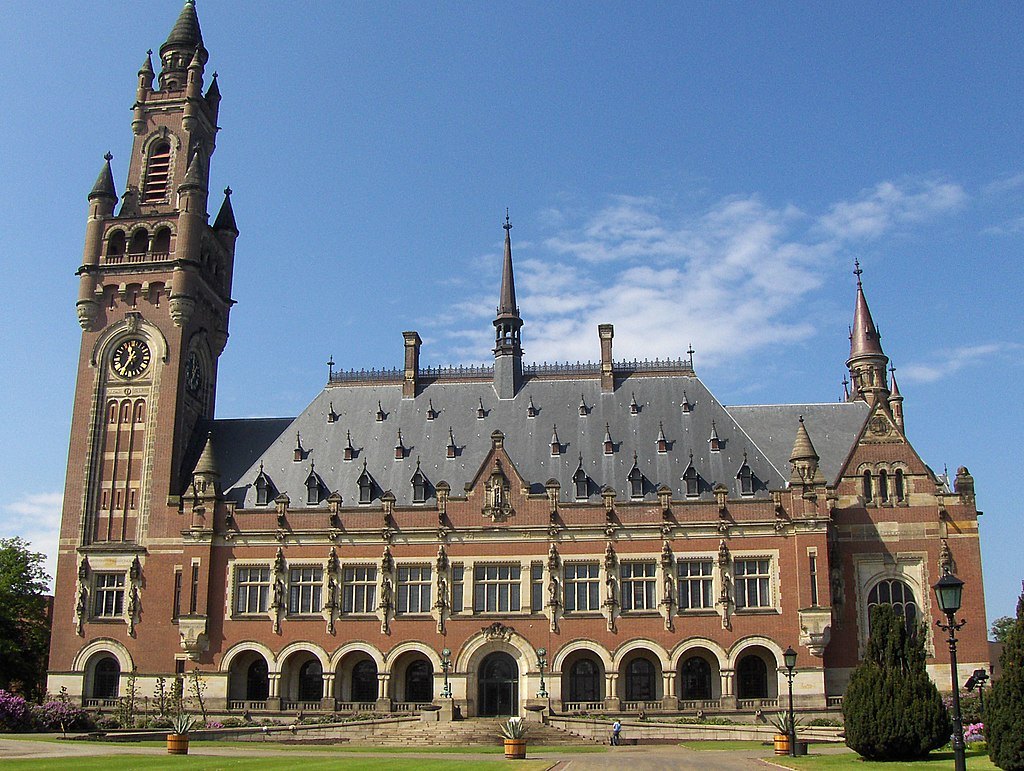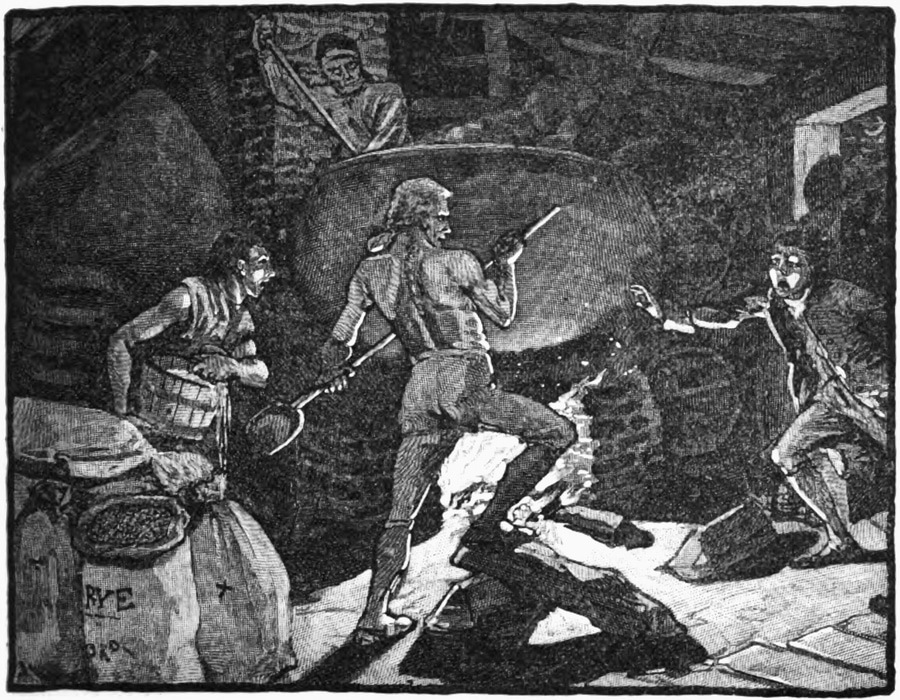Article II Conservatism Is Alive and Well
A brief reaction to the travel-ban litigation, and to the end of the Supreme Court’s Term generally: Article II conservatism is alive and well. Let me explain.
Published by The Lawfare Institute
in Cooperation With

A brief reaction to the travel-ban litigation, and to the end of the Supreme Court’s Term generally: Article II conservatism is alive and well. Let me explain.
The conservative legal movement has always had (as relevant here, at least) two distinct strains. One strain might be called “Article II conservatism”—deferential to presidential and executive power in constitutional law, deferential to agencies in administrative law, and favoring a narrow reading of civil liberties in criminal law, terrorism, and related contexts. Exemplars of this sort of conservatism might include Chief Justice Vinson, Chief Justice Rehnquist, and Justice Scalia in certain sectors of his jurisprudence (Morrison v. Olson and City of Arlington v. FCC leap to mind). Another strain might be called “Article III conservatism”—emphasizing de novo review by judges, suspicious of executive power, suspicious of deference in administrative law, and hospitable to civil liberties, to libertarian property rights, or to both. Exemplars here might include Justice Black, Justice Scalia in other sectors of his jurisprudence (such as his separate opinions criticizing Auer deference), and to some degree Justice Thomas.
As the appearance of Justice Scalia on both lists indicates, these two strands of the conservative legal movement have long co-existed uneasily, sometimes within the same person. In 2016-17, there was a brief moment when it seemed that Article III conservatism might have finally eclipsed its rival. A number of libertarian-conservative lawyers, both on and off the bench, criticized deference in administrative law, and the appointment of Justice Gorsuch excited them. Auer deference came under sustained attack, and to some extent even Chevron deference as well. As to presidential power, many speculated that Trump’s antics and general lack of credibility and seriousness might have appreciably weakened the defense of the travel ban, and more generally the institution of the presidency itself—wounds partially self-inflicted by tweet.
In retrospect, this moment was probably always overstated. Consider that as to Chevron deference, for example, only Justice Thomas and—if he follows his lower-court opinions, which is hardly a foregone conclusion—Justice Gorsuch have squarely criticized its constitutional premises, although one could imagine the other SCOTUS conservatives adding additional limits and safeguards around the edges. As to Auer deference, as recently as Perez v. Mortgage Bankers in 2015 six Justices (including the Chief Justice and Justice Kennedy) confirmed their support for the doctrine, as appropriately limited, and the Court denied certiorari in another case that tried to attack Auer directly. Still, at conferences and on social media, a sense of expectation hovered in the air. One heard loose talk of a revival of constitutional constraints on delegation, of overturning Auer and Chevron deference, indeed of a basic recalibration of the balance between judicial authority on the one hand and presidential, executive or administrative power on the other.
The Term that just ended shows precious little sign of any such recalibration. Au contraire, in fact: Article II conservatism strolled back onto the national stage and took a bow. At several conspicuous moments the Justices themselves wielded the judicial power in order to enhance or confirm executive power—a signal triumph for the Rule of (Executive-made) Law. Commentators will treat the cases in detail; I will briefly mention only three episodes.
The travel ban litigation. In a per curiam decision, the Court reinstated much of the president’s executive order on immigration, with clearly defined exceptions. Whereas the lower courts had indulged themselves in aggressive constitutional #resistance, the Justices were sober-minded, serious and appreciably more deferential. Here there was no citation of tweets, nor did ambiguous remarks on talk shows make an appearance. Rather the Justices conspicuously referred to the urgent and compelling nature of the president’s interest in protecting national security, and generally reinstated the “presumption of regularity” that traditionally applies to presidential determinations. Of course professional spinners instantly went into operation, comparing the Justices’ decision either to the baseline of the hostile lower-court decisions (to emphasize the president’s partial victory) or instead to some imaginary baseline of total deference (to emphasize the president’s partial defeat). For whatever it’s worth, I think the former baseline is superior, if only because it has a real-world point of reference to support it—the legal status quo ante. My main point is different, however: the analytic framework with which the Justices approached the case, their presumptions and assumptions, were far more respectful of presidential authority than the approach of the lower courts. Whatever the ultimate outcome, presidential power over immigration and travel will be evaluated by the Court without the sort of self-important institutional overreaching that the lower courts displayed.
Bivens actions and qualified immunity. In Ziglar v. Abbasi, the Court—through Justice Kennedy for a 4-2 majority—importantly recast its approach to Bivens actions. The old presumption favored the Bivens remedy unless special factors counsel hesitation. Under the new presumption, there is to be no extension of the Bivens remedy to new settings. To be sure, this more or less describes the extant pattern of the decided cases, but “making it explicit” is always an important step, and will deter future Bivens adventurism by lower courts. Along the way the Court also reconfirmed its robust version of qualified immunity, under which disagreement among the lower courts shows that the relevant law isn't “clearly established.”
Administrative deference. In Mathis v. Shulkin, a case challenging deference to medical examiners in the Department of Veterans Affairs, Gorsuch dissented alone from denial of certiorari, not counting a separate statement by Justice Sotomayor. Gorsuch questioned the presumption of regularity afforded the examiners, asking about its legal provenance; but the rest of the Court didn’t seem worried about the issue. When even Justice Thomas won’t join a dissent that complains about administrative deference, it suggests little appetite on the Court for a serious rethinking.
I don’t want to overstate any of this. Of course the merits of the travel ban case have yet to be decided, and intervening events may or may not change matters; of course a denial of certiorari isn’t a merits disposition; and so on. Yet at least relative to the excitement that built up among libertarian-conservative scholars about the triumph of Article III conservatism, the Justices did their best to underscore their continuing support for robust executive authority. As of the end of this Term, for now at least, executive power seems not in conflict with the Rule of (Judge-made) Law, but supported and even favored by it. As I have argued at length elsewhere.





